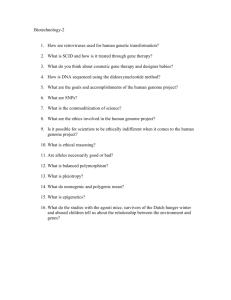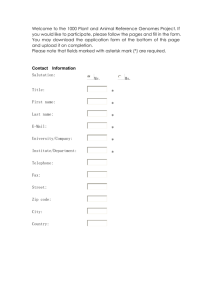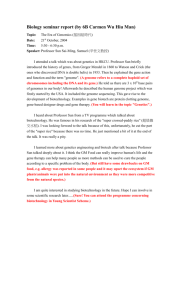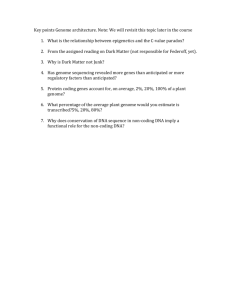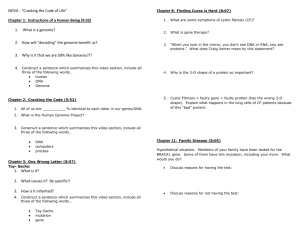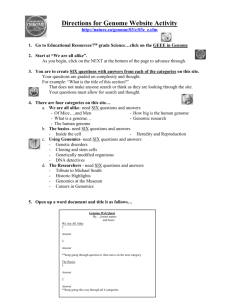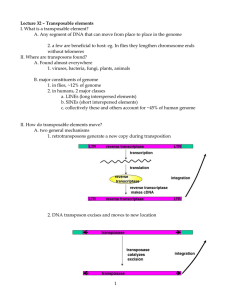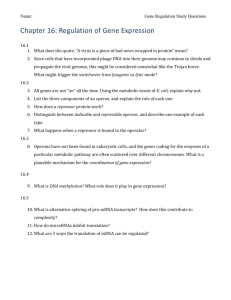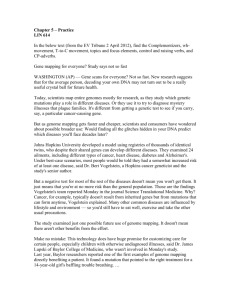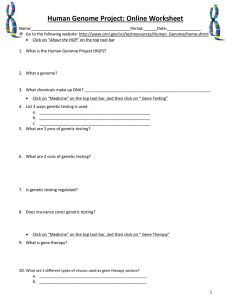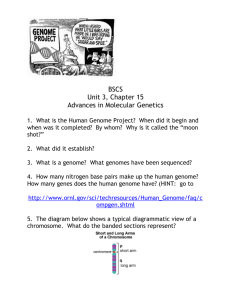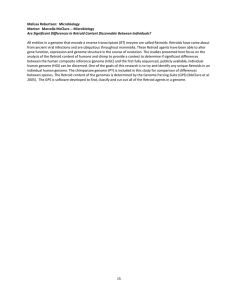Gene & genome technology
advertisement
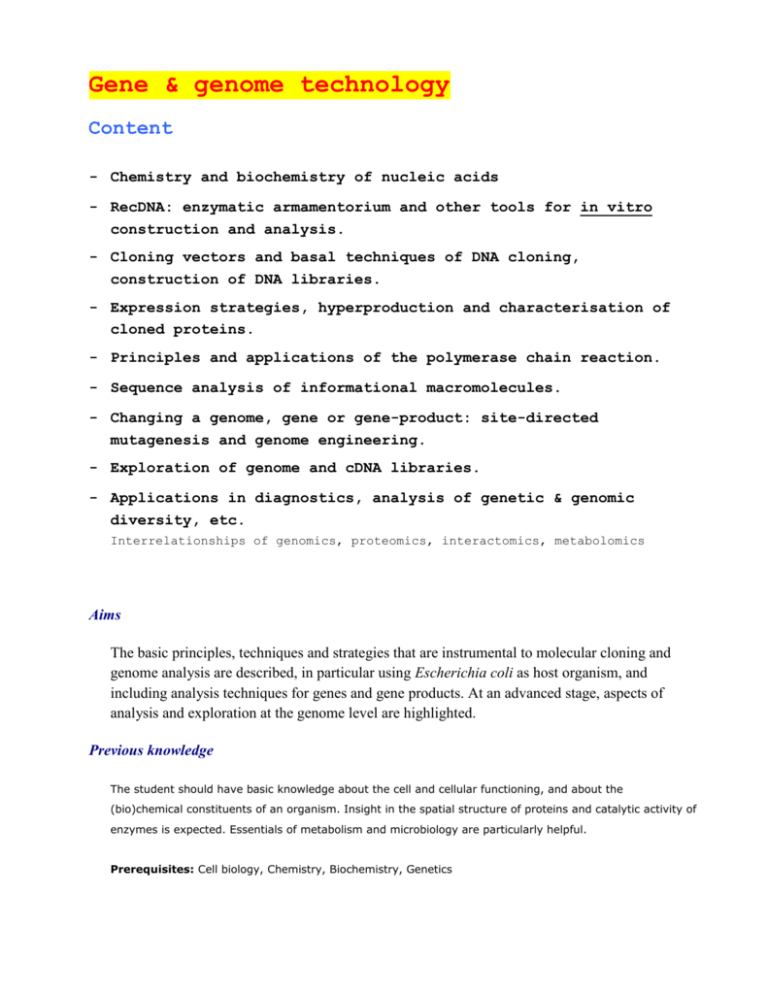
Gene & genome technology Content - Chemistry and biochemistry of nucleic acids - RecDNA: enzymatic armamentorium and other tools for in vitro construction and analysis. - Cloning vectors and basal techniques of DNA cloning, construction of DNA libraries. - Expression strategies, hyperproduction and characterisation of cloned proteins. - Principles and applications of the polymerase chain reaction. - Sequence analysis of informational macromolecules. - Changing a genome, gene or gene-product: site-directed mutagenesis and genome engineering. - Exploration of genome and cDNA libraries. - Applications in diagnostics, analysis of genetic & genomic diversity, etc. Interrelationships of genomics, proteomics, interactomics, metabolomics Aims The basic principles, techniques and strategies that are instrumental to molecular cloning and genome analysis are described, in particular using Escherichia coli as host organism, and including analysis techniques for genes and gene products. At an advanced stage, aspects of analysis and exploration at the genome level are highlighted. Previous knowledge The student should have basic knowledge about the cell and cellular functioning, and about the (bio)chemical constituents of an organism. Insight in the spatial structure of proteins and catalytic activity of enzymes is expected. Essentials of metabolism and microbiology are particularly helpful. Prerequisites: Cell biology, Chemistry, Biochemistry, Genetics
